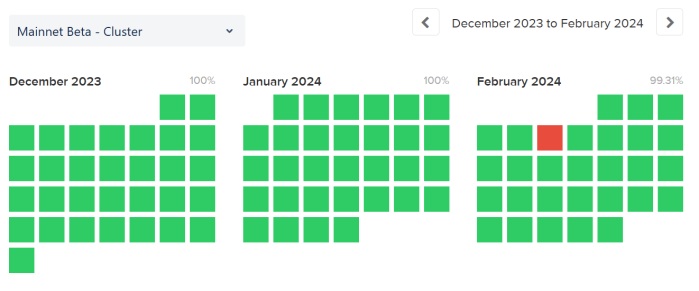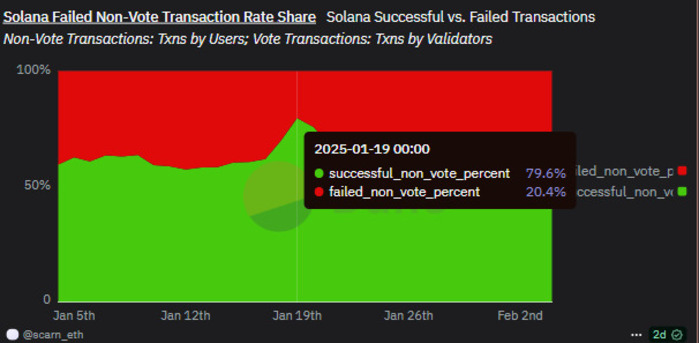TL;DR
- Solana has completed one year without block production interruptions, maintaining stability even with the increase in activity.
- 30% of transactions still fail, but traders have raised fees to ensure their inclusion in the blocks.
- Coinbase faced delays in SOL withdrawals due to high demand, affecting users during times of volatility.
Solana (SOL) has completed one year without any interruptions in block production, marking the longest period of stability in its history. Since February 2024, the network has processed transactions without disruption, even with the significant increase in activity. The addition of more Firedancer nodes has been instrumental in maintaining consensus between validators and enhancing processing capacity.
Solana Can’t Handle High Demand
Although the consensus remains stable, transaction failures continue to be an issue. Approximately 30% of transactions fail to be completed, impacting users who do not pay for priority fees. During high-demand periods, such as the launch of the TRUMP token, the success rate peaked at 79% as traders increased their fees to secure block inclusion. This change in strategy has boosted revenues for JitoSOL, the entity responsible for block construction in the network.

Coinbase Faces Hours of Delays in SOL Transactions
Delays have also affected users acquiring SOL on centralized exchanges. Coinbase, for instance, experienced significant delays in deposits and withdrawals due to the high demand for the token, sparking speculation about the platform’s reserve availability. While the issue was resolved, previous reports indicated that some transfers took between 6 to 9 hours to complete, severely impacting users trying to operate in volatile markets.

The Solana ecosystem has evolved with advancements in DeFi tools, such as the Jupiter aggregator, which streamlines transactions on decentralized exchanges (DEXs) and reduces waiting times. Despite these improvements, congestion continues to be a major challenge during periods of peak activity. While the network has maintained stability in block production. Users are still faced with difficulties in executing transactions smoothly during high-demand moments

